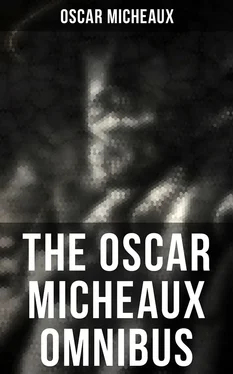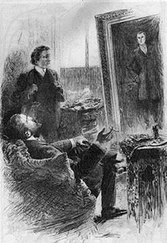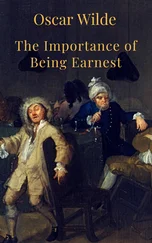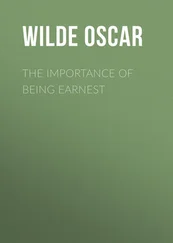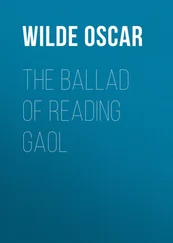My sister came down from her claim and took Orlean home with her. While she was in Tipp county a letter came from her father for her, and thinking it might be a matter needing immediate attention, I opened it and found a money order for eighteen dollars, sent from Cairo, with instructions when to start, and he would be home to meet her when she arrived, suggesting that I could come later.
I was about the maddest man in Megory when I was through reading the letter, fairly flying to the post office, enclosing the money order and all, with a curt little note telling what I had done; that Orlean was out on her claim and would be home in a few days, but that we were not coming to Chicago. I would have liked to tell him that I was running my own house, but did not do so. I was hauling shelled corn to a feeder in town, when Orlean came. She was driving a black horse, hitched to a little buggy I had purchased for her, and I met her on the road. I got out and kissed her fondly, then told what I had done. My love for her had been growing. She had been gone a week and I was so glad to see her and have her back with me. I took the corn on into town and when I returned home she had cleaned up the house, prepared a nice supper and had killed a chicken for the next day, which was Christmas. She then confessed that she had written her father that he could send the money.
"Now, dear," she said, as though a little frightened, "I'm so sorry, for I know papa's going to make a big row."
And he did, fairly burned the mail with scorching letters denouncing my action and threatening what he was liable to do about it, which was to come out and attend to me. I judged he did not get much sympathy, however, for a little while after Orlean had written him he cooled down and wrote that whatever Orlean and I agreed on was all right with him, though I knew nothing of what her letter contained.
The holidays passed without further event, excepting a letter from Mrs. Ewis, to my wife, in which she said she was glad that she had stayed in Dakota and stuck by her husband. The letter seemed a little strange, though I thought nothing of it at the time. A few months later I was to know what it meant, which was more than I could then have dreamed of. We were a lone colored couple, in a country miles from any of our kind, honest, hopeful and happy; we had no warning, nor if we had, would we have believed. Why, indeed, should any young couple feel that some person, especially one near and dear, should be planning to put asunder what God had joined together?
It was now the last of February and we expected our first-born in March. My wife had grown exceedingly fretful. Grandma was with us, having made proof on her homestead. Orlean kept worrying and wanting to go to her claim, talking so much about it, that I finally talked with some neighbor friends and they advised that it would be better to take her to the homestead, for if she continued to fret so much over wanting to be there, when the child was born, it might be injured in some way. When the weather became favorable, I wrapped her and grandma up comfortably, and sent them to the claim in the spring wagon, while I followed with a load of furniture, making the trip in a day and a half. We had close neighbors who said they would look after her while I went back after the stock. A lumber yard was selling out in Kirk, and I bought the coal shed, which was strongly built, being good for barns and granaries. Cutting it into two parts, I loaded one part onto two wagons and started the sixty miles to the claim. A thaw set in about the time I had the building as far as my homestead south of Megory. I decided to leave it there and tear down my old buildings and move them, instead. I received a letter from Orlean saying they were getting along nicely, excepting that the stove smoked considerably; and for me to be very careful with Red and not let him kick me. Red was a mule I had bought the summer before and was a holy terror for kicking.
My sister arrived that night from a visit to Kansas, and on hearing from Orlean that she was all right, I sent my sister on to her claim, and hiring more men, moved the balance of the building onto the old farm, tore down the old buildings, loaded them onto wagons, and finally got started again for Tipp county. That was on Saturday. The wind blew a gale, making me feel lonely and far from home. Sunday morning I started early out of Colone planning to get home that night, but the front axle broke and by the time we got another it was growing late. We started again and traveled about two miles, when the tongue broke, and by the time that was mended it was late in the afternoon. About six o'clock we pulled into Victor, tired and weary. The next day, when about five miles from home, we met one of the neighbors, who informed me that he had tried to get me over the phone all along the way; that my wife had been awfully sick and that the baby had been born, dead. It struck me like a hammer, and noting my frightened look, he spoke up quickly:
"But she's all right now. She had two doctors and didn't lack for attention."
On the way home I was so nervous that I could hardly wait for the horses to get there. I would not have been away at this time for anything in the world. I knew Orlean would forgive me, but we had not told her father. Orlean had told her mother and thought she would tell him. He made so much ado about everything, we hoped to avoid the tire of his burdensome letters, but now, with the baby born during my absence, and it dead, when we had so many plans for its future. It was to have been the first colored child born on the Little Crow, and we thought we were going to make history.
When I got to the claim I was weak in every way. My wife seemed none the worse, but my emotions were intense when I saw the little dead boy. Poor little fellow! As he lay stiff and cold I could see the image of myself in his features. My wife noticed my look and said:
"It is just like you, dear!"
That night we buried the baby on the west side of the draw. It should have been on the east, where the only trees in the township, four spreading willows, cast their shadows.
"Well, dear, we have each other," I comforted her as she cried.
Between sobs she tried to tell me how she had prayed for it to live, and since it had looked so much like me, she thought her heart would break.
When the child was born they had sent a telegram to her father which read:
"Baby born dead. Am well."
This was his first knowledge of it. We received a telegram that night that he was on the way and the next day he arrived, bringing Ethel with him. When he got out of the livery rig that brought them I could see Satan in his face. A chance had come to him at last. It seemed to say:
"Oh, now I'll fix you. Away when the child was born, eh?"
His very expression seemed jubilant. He had longed for some chance to get me and now it had arrived. He did not speak to me, but bounded into the room where my wife was, and she must have read the same thing in his expression, for, as he talked about it later, I learned the first thing she said was:
"Now, papa. You must not abuse Oscar. He loves me and is kind and doing the best he can, but he is all tied up with debt."
He would tell this every few hours but I could see the evil of his heart in the expression of his eyes, leering at me, with hatred and malice in every look. He and Ethel turned loose in about an hour. From that time on, it was the same as being in the house with two human devils. They nearly raised the roof with their quarreling. Of the two, the Reverend was the worst, for he was cunning and deceitful, pretending in one sentence to love, and in the next taking a thrust at my emotions and home. I shall never forget his evil eyes.
Ethel would cry out in her ringing voice:
"You're practical! You're practical! You and your Booker T. Washington ideas!"
Читать дальше
